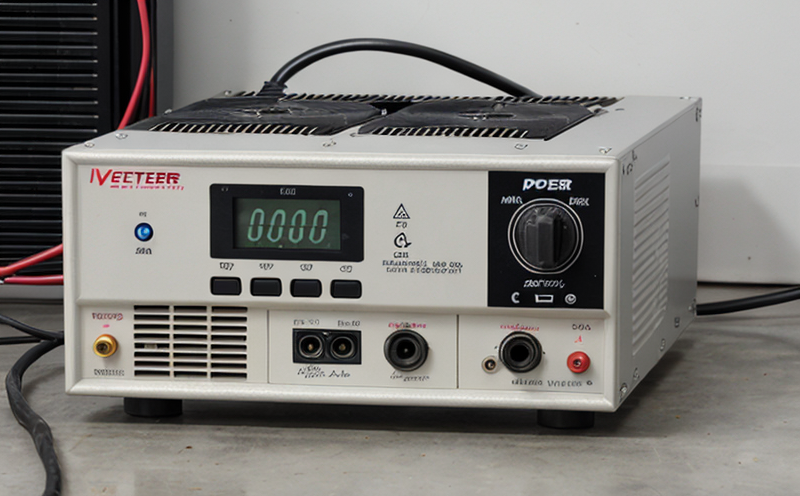IEEE 2030 Communication and Interoperability Testing of Smart Inverters
The IEEE P2030.7 Working Group has developed the IEEE Standard for Smart Grid Interoperability for Energy Technologies, which provides a framework for communication and interoperability between smart inverters and other components in energy systems. This standard is critical for ensuring that devices can communicate seamlessly, exchange data accurately, and operate harmoniously within interconnected networks.
The IEEE 2030 standard covers various aspects of smart grid communication, including:
- Data exchange protocols
- Security measures to protect information integrity
- Interoperability between different vendors' products
- Network management and control functions
- Energy data collection and reporting mechanisms
The IEEE 2030 standard is particularly relevant for the testing of smart inverters, which play a crucial role in modern energy systems by enabling efficient power flow management. By ensuring that these devices meet the interoperability requirements defined in IEEE standards, manufacturers can guarantee their products are compatible with other components and networks.
At our laboratory, we offer comprehensive testing services for compliance with the IEEE 2030 standard. Our team of experts ensures that your smart inverters not only meet but exceed the stringent requirements set forth by this industry-standard.
The importance of interoperability cannot be overstated in today's rapidly evolving energy landscape. With increasing reliance on renewable energy sources, it is essential for all components within an energy system to work together effectively. This includes seamless communication between inverters, storage systems, and grid operators, among others. Meeting IEEE 2030 standards ensures that your product integrates smoothly into existing infrastructure while being ready for future advancements in the field.
Our testing services encompass a wide range of parameters to ensure full compliance with IEEE P2030.7. These include:
- Detailed communication protocol validation
- Evaluation of security features and encryption methods
- Performance under diverse network conditions
- Testing for interoperability across different platforms and vendors
- Verification of energy data accuracy and reporting capabilities
We use state-of-the-art equipment to simulate real-world scenarios that your smart inverters might encounter. This allows us to identify potential issues early in the development process, ensuring reliable performance throughout its lifecycle.
By partnering with our laboratory for IEEE 2030 communication and interoperability testing of smart inverters, you can rest assured knowing that your product meets the highest industry standards. Our expertise ensures accurate and thorough testing, providing valuable insights into areas where improvements may be necessary before commercial release.
Why It Matters
The interoperability provided by IEEE 2030 is vital for several reasons:
- Enhanced Efficiency: Devices that can communicate effectively contribute to more efficient energy management.
- Better Reliability: Seamless interoperability reduces the likelihood of system failures due to miscommunication between components.
- Increased Scalability: Systems built on standardized protocols are easier to scale up or down as needed without compromising performance.
- Improved Security: Robust security measures ensure that sensitive energy data is protected from unauthorized access or tampering.
In an era where sustainable practices and smart technology are gaining prominence, meeting these standards not only sets your product apart in the market but also contributes positively to environmental conservation efforts by optimizing resource utilization. Compliance with IEEE 2030 standards demonstrates a commitment to innovation and forward-thinking design principles that align with global trends towards greener technologies.
Industry Applications
The application of IEEE 2030 communication and interoperability testing extends across various sectors within the energy industry:
- Renewable Energy Projects: Ensuring that all components, including inverters, work together efficiently in solar farms or wind parks.
- Smart Grids: Facilitating seamless integration of distributed generation sources into existing power networks.
- Homes and Businesses: Supporting the implementation of home energy management systems (HEMS) that allow users to monitor and control their electricity usage remotely.
- Sustainability Initiatives: Contributing towards reducing carbon emissions through optimized renewable resource utilization.
By adopting IEEE 2030 standards during product development, companies can ensure they are contributing positively to these important initiatives while also gaining a competitive edge in the marketplace. The ability to integrate seamlessly into existing infrastructure and future-proof installations against technological changes is invaluable for both established players and newcomers alike.
Why Choose This Test?
- Compliance Assurance: Ensures your product meets the exacting requirements set forth by IEEE standards, enhancing its marketability.
- Risk Mitigation: Identifies potential issues early in development before they become costly problems during production or deployment phases.
- Innovation Support: Provides deep technical insights that can guide continuous improvement of your product offering.
- Client Confidence: Demonstrates a commitment to quality and reliability, building trust with consumers and partners.
- Future-Proofing: Ensures compatibility with current and future technologies as the energy sector evolves rapidly.
The IEEE 2030 standard is a cornerstone of modern smart grid technology. By choosing our laboratory for this testing service, you are investing in the long-term success of your product and ensuring it plays its part in shaping an increasingly sustainable and efficient global energy landscape.





